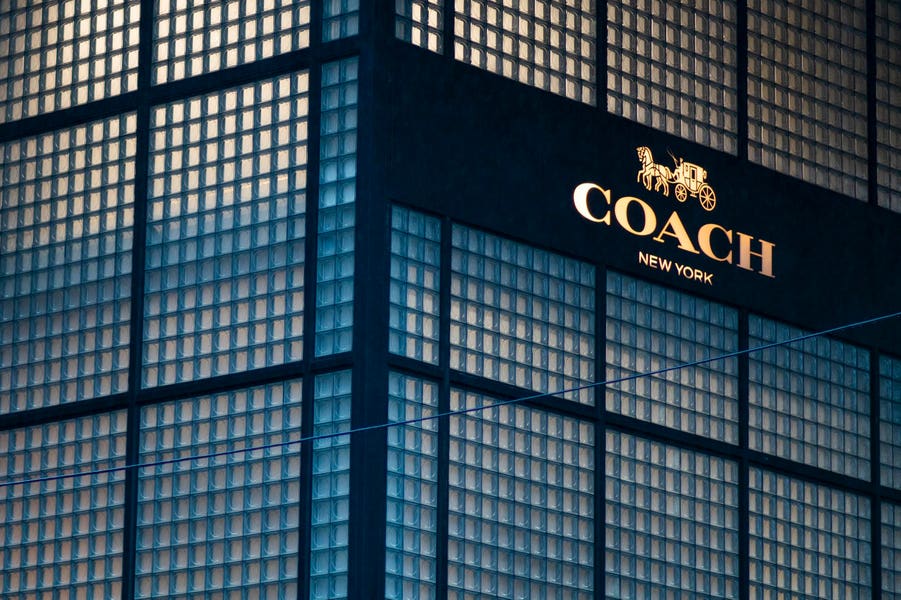
The $8.5 billion Tapestry acquisition of Capri Holding deal announced last August is on ice, after the NYT Dealbook broke the news the Federal Trade Commission may sue to block the agreement.
FTC commissioners will meet next week to take up the case, as they consider whether the acquisition could be in violation of anti-trust regulations. On a side note, the European Union and Japan have approved the acquisition.
The Tapestry-Capri deal is effectively a merger of equals. Tapestry, which owns the Coach, Kate Spade and Stuart Weitzman brands, ended fiscal 2023 with $6.7 billion in revenues. Capri ended its year at $5.6 billion from Michael Kors, Jimmy Choo and Versace brands.
Together, they’d create a U.S.-based luxury brand powerhouse able to compete on more even footing with the European luxury conglomerates. These include the industry’s number one LVMH at $93 billion in revenues with some 75 luxury brands under its flag and its number-two $20 billion Kering, which owns Gucci, Yves Saint Laurent, Bottega Veneta, Balenciaga, Alexander McQueen among others.
A primary mission of the FTC is to “prevent anticompetitive mergers and other anticompetitive business practices in the marketplace,” but stepping in to block the Tapestry-Capri deal would be a step in the opposite direction.
“We cannot speculate on the FTC’s intentions, but we strongly believe this is a deal that deserves to clear as it is pro-consumer and pro-competitive,” Tapestry shared in a statement to me.
To block the deal would kneecap the companies and their brands from competing against the industry giants in the $386 billion global personal luxury goods market.
No Precedent
At this point, TD Cowen figures there’s a 50-50 chance the deal will go through. Based on the questions the FTC has directed to the two companies, Cowen’s Oliver Chen said, “The most significant incoming questions have focused on deal break valuation as well as long-term Capri shareholder interests.”
In the deal’s favor, Chen observed there is “essentially no precedent for blocked acquisitions within the fashion and accessories sector.” He also noted the industry has low barriers of entry, is not concentrated in any single distribution channel but is spread widely across multiple physical and digital environments and operates in a “volatile cultural and brand relevance” market.
Unlike recent FTC efforts to block grocery retail giant Kroger
KR
acquisition of Albertsons
ACI
, luxury brands operate in a highly discretionary marketplace as compared to the essential business of supermarket chains.
Former FTC chair William Kovacic, told the NYT this is “not a case that has great appeal as a way of protecting the downtrodden.”
And Howard Hogan, who heads up the retail consumer practice at Gibson Dunn law firm, said, “It is the paradigmatic part of the economy where there is ample competition.” I would add crushing competition when considering the broader global luxury landscape.
Standing alone, neither Tapestry nor Coach has a chance to be competitive against LVMH, Kering or other leading global luxury conglomerates. Whether they can do so together remains to be seen, but these two U.S. companies need a fair shake to compete in the global market, not be hamstrung by the government.
Help Not Hurt American Businesses
Tapestry remains sanguine regarding the prospects for the deal to go through.
“This combination involves six unique brands that compete with hundreds of others in a dynamic and constantly expanding global luxury market that delivers products in a wide range of categories and across a vast price spectrum,” Tapestry said.
“Consumers have hundreds of choices both from established players and new entrants. We have full confidence in the merits of this transaction and in our legal arguments, should we need to make them,” it added.
Unfortunately, the Biden Administration has taken a tougher stance on mergers and acquisitions recently. In December the Justice Department released new guidelines for the FTC to follow in enforcing antitrust law.
Specifically, the guidelines take aim at blocking mergers in “highly concentrated markets.” Whether the FTC views the luxury market as such will be determined, but one can see how it might be seen that way.
TD Cowen said the FTC could well block the merger on the direct competitive nature of the companies and brands involved:
“The interpretation under the new guidelines could allow the agency to bring a lawsuit without defining a market’s boundaries, such as ‘accessible luxury’ or ‘retail outlets.’ Rather, the agency only needs to prove the two parties compete head-to-head, which would reduce competition in a market if the parties combined.”
Without a doubt, Tapestry and Capri have been fierce competitors, but they laid down their swords last August to align and take on a bigger foe – the global luxury conglomerates – and the greater opportunity to compete through strength in the global luxury market.
Here’s hoping that the FTC takes the broader rather than narrower view and gives the combined companies the go-ahead to compete and bring more money back to the U.S. economy.
